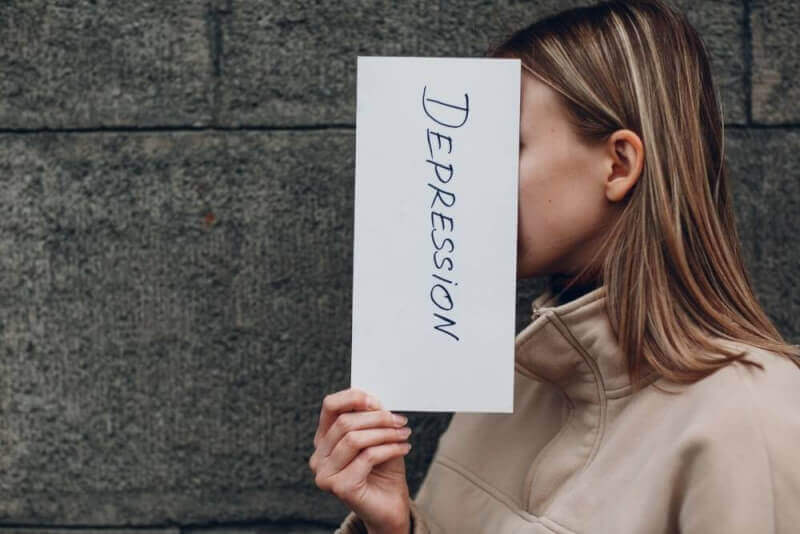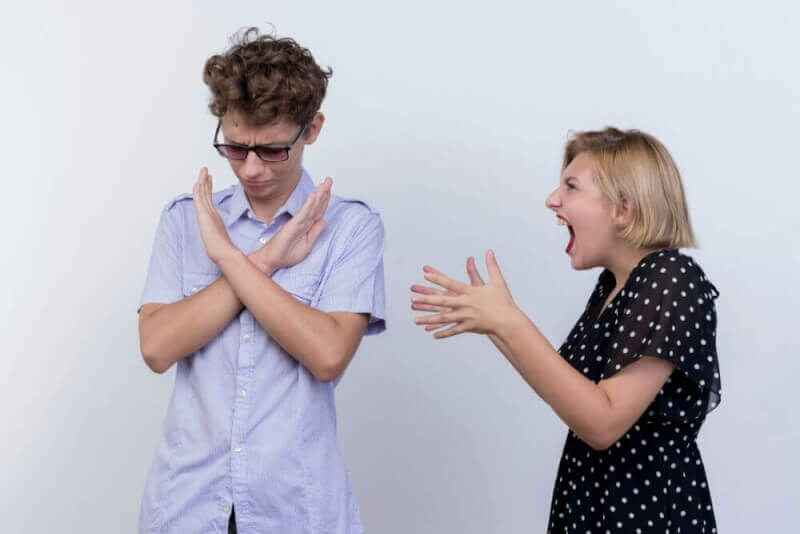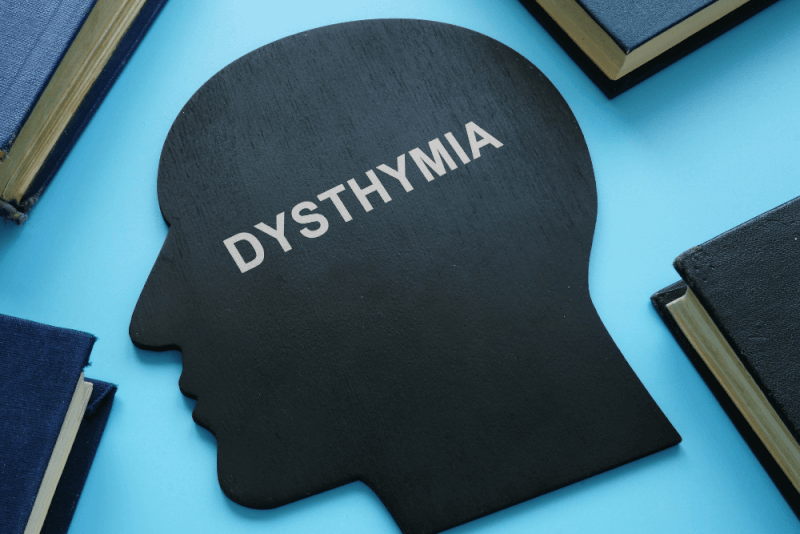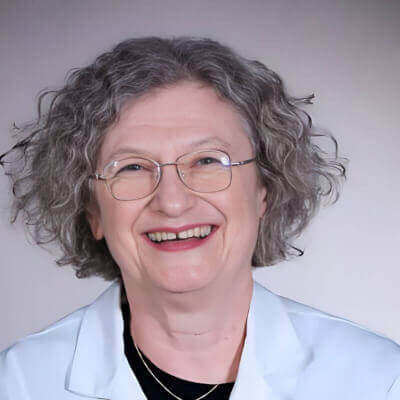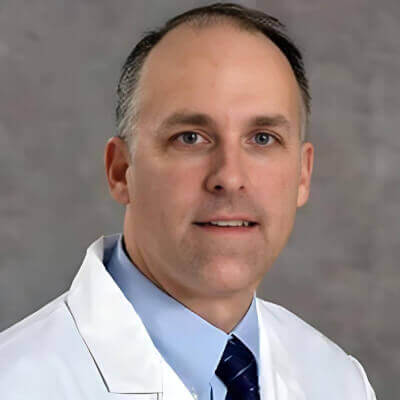30 Second Summary
- Depression is an illness that negatively affects thinking, emotions and behavior.
- Causes can stem from psychological, sociological and biological factors.
- Symptoms include mood disturbance, appetite changes, sleep problems, loss of energy, poor concentration, difficulty making decisions, feelings of worthlessness and guilt.
- Depression is a treatable illness. Medication and therapy are used in treatment.
What is depression?
Depression, called major depressive disorder in medical language, is a disease that negatively affects thinking, emotions and behavior. In addition to being quite common in the community, it is a treatable and serious disease. Depression is a medical illness that affects patients' enjoyment of life and causes them to be in a constant state of sadness. Depression has physical as well as psychological symptoms. In particular, people with depression have serious difficulties in fulfilling their duties at work or school as well as at home.
Causes of depression
Depression does not occur due to a single symptom. Depression occurs for psychological, sociological and biological reasons. However, there are some risk factors that increase the risk of depression. These risk factors are as follows.
- Early parental loss,
- Separation or death of a loved one,
- Being a woman
- Low socioeconomic level,
- Job loss
- Alcohol use,
- Divorce
- Bad and traumatic childhood,
- Substance use,
- Family history of depression,
- Some used medicines,
- Hormonal imbalances,
- Some diseases,
Symptoms of Depression
It is perfectly normal for people to feel sad from time to time. But when it comes to depression, there are different levels of feeling sad. This is why sadness and depression should not be confused with each other. Symptoms of depression include the following.
- Suicidal tendencies,
- Loss of concentration,
- Decision-making difficulties,
- Don't feel worthless,
- Don't feel guilty,
- Slowing down of speech,
- Slowness in movements,
- Feeling tired all the time,
- Difficulty falling asleep,
- Frequent awakenings,
- Do not oversleep,
- Appetite changes,
- Loss of pleasure in daily activities,
- Feeling sad all the time,
In order for patients to be diagnosed with depression, the above symptoms must persist for at least 2 weeks. Depression is seen at all ages, from children to the elderly, and is more common in women. On the other hand, even if depression is treated, it is likely to recur in the future.
How is depression diagnosed?
In the field of psychiatry, depression is one of the most well-defined disorders. Specialists can diagnose depression based on the history taken from patients. There is also a depression test to identify depression.
In addition, anxiety disorder, which is widespread in society, should not be confused with depression. Because anxiety disorders are anxiety disorders that patients experience at levels that are not related to the situation. Anxieties, usually about love, work and money, are uncontrollable and last for at least 6 months.
Types of Depression
Symptoms vary from patient to patient. For this reason, it is important for experts to classify the symptoms correctly in order to determine the type of depression. This classification is also important for planning the right treatment. It is possible to roughly summarize the types of depression as follows.
Major depression
Major depression, also called clinical depression or major depressive disorder, is the type of depression with the clearest symptoms of depression. People with major depression completely lose their ability to enjoy life. For this reason, there are many symptoms, especially appetite and sleep problems.
Symptoms of major depression
Symptoms that can be seen in patients with major depression are as follows:
- Weight loss or weight gain of approximately 5% of total body mass
- Loss of energy to the point of feeling exhausted every day
- Impaired concentration
- Indecision
- Feeling worthless almost every day
- Feelings of guilt
- Persistent thoughts of death or suicide
- Inability to sleep or oversleeping
- Do not listen
- Slow movement
- Slow thinking
- Loss of interest in life activities
Diagnosis of major depression
DSM 5 criteria are used to diagnose major depression. The first two of these criteria must be definitely present in patients. In addition, the presence of five of the criteria is sufficient for major depression. The DSM 5 criteria include the following:
- Decreased interest and desire
- Depressed mood
- Suicidal tendencies
- Difficulty concentrating
- Feelings of guilt
- Feeling of worthlessness
- Energy reduction
- Constant fatigue
- Agitation
- Weakening of psychomotor skills
- Decreased or increased sleepiness
- Appetite changes
- Loss of function
- Symptoms do not occur due to substance abuse or physical illness
- Symptoms cannot be explained by other mental illnesses
- There are never manic or hypomanic episodes.
Treatment of major depression
Major depression is one of the most treatable mental illnesses. In addition to medication, therapies are also used. The group of drugs used in the treatment of major depression are antidepressants. Other drug groups are also used to support antidepressant drugs and increase their effectiveness. Electroconvulsive therapy (ECT) is also used when the medication is insufficient or the symptoms are too severe. There are also some lifestyle changes that patients can make to support their treatment. These include the following.
- Aromatherapy
- Quality nutrition
- Maintaining social relations
- Cognitive behavioral therapy
- Managing stress
- Exercise
Chronic depression
Chronic depression, also called dysthymia, is a diagnosis of depression that lasts more than 2 years in adults and 1 year in children. The definition of dysthymia, in short, is a state of prolonged and habitual melancholy, introversion, anxiety due to personal inadequacy and lack of joy.
Symptoms of chronic depression
Symptoms of chronic depression, which are similar to symptoms of depression, include the following:
- Irritability, which is more pronounced when children and adolescents are in a bad mood
- Lack of interest in activities in the surrounding area during the day
- Symptoms lasting more than 2 years in adults and more than 1 year in adolescents and children
In addition, patients may experience 2 or more of the following symptoms:
- Feeling hopeless
- Difficulty making decisions
- Inability to concentrate
- Decreased self-confidence
- Decreased self-esteem
- Feeling physically tired
- Too much or too little sleep
- Appetite disorders
Diagnosis of chronic depression
DSM 5 criteria are also used in the diagnosis of chronic depression. However, the symptoms seen in patients with chronic depression are milder and last longer than major depression.
Treatment of chronic depression
The intensity of chronic depression, which can last for years, varies from time to time. Therapies are of great importance in the treatment of chronic depression, which usually does not require medication. Talking therapies help patients to be aware of their illness and help them to stabilize their mood. In addition, since some patients with chronic depression may experience major depression attacks, medication may be necessary in some periods.
Depression in bipolar disorder
In bipolar disorder, formerly called manic-depressive disorder, patients experience both mania and depression. During mania, patients are very active and cheerful, but during periods of depression they are depressed. The symptoms seen in patients during depression are similar to those of classic depression. If patients do not have a manic episode, then they have major depression.
Seasonal depression
Seasonal depression is a term used to describe major depression that starts at certain times of the year. In order to talk about seasonal depression, symptoms of major depression must start and end in the same time frame within the last two years.
Pregnancy-related depression
Depression that can occur during pregnancy or within 4 weeks after delivery is called pregnancy-related depression.
Psychotic depression
Psychotic depression is characterized by patients having false and fixed beliefs or hallucinations during the period of depression.
Menstrual depression
It is a type of depression that occurs within 1 week before women's menstrual periods and ends with the onset of bleeding or a few days after bleeding begins. Menstrual depression has a significant impact on patients' quality of life.
Atypical depression
Atypical depression is recognized when patients have at least three of the following symptoms during periods of depression:
- Patients feel much better in events that are pleasant for them
- Weight gain due to increased appetite
- Sleeping more than normal sleep patterns
- Feeling of heaviness in the arms and legs
- Extreme anger at the slightest rejection from others
- Deep anxiety
Melancholic depression
Melancholic depression is referred to when at least four of the following symptoms are observed in patients during depression, in addition to loss of pleasure and unresponsiveness to positive stimuli:
- Excessive guilt
- Anorexia
- Weight loss
- Inactivity
- Agitation
- Waking up early in the morning
- A deep despair
- Pessimism
- Feeling depressed and unhappy
- Inability to feel better even when things are pleasant
- Not enjoying activities that are normally enjoyed
Stages of depression
The so-called 5 stages of grief, created by Dr. Kübler Ross, also apply to depression. The Five Stages of Grief describes the stages people go through after losing a loved one or receiving a terminal diagnosis. Although these stages are not linear, people with depression also go through them.
Denial
Patients may have difficulty accepting these symptoms when they first appear. Some people with depression may find it difficult to accept reality, even if they have been experiencing symptoms for a long time, and they convince themselves that these feelings are temporary. Patients in denial may experience denial in many different ways, such as procrastination, avoidance and preoccupation. Patients may also experience symptoms such as shock, confusion and drowsiness at this stage.
Anger
People with depression can go through a phase where they feel victimized and experience anger. Patients begin to experience severe confusion and fear as they wonder what is happening to them. This manifests itself as anger. If patients are not informed about their situation, the anger they feel is exacerbated.
Negotiation
The bargaining phase occurs when patients begin to avoid depression. The bargaining phase also brings with it patients' feelings of guilt. During this period, especially after diagnosis, patients believe that if they do one thing, something else will change, even if it doesn't make sense. The most common moods in patients with depression at this stage are shame, insecurity and anxiety. This is because patients in this stage start to think about both their past and their future and compare themselves with other people.
Depression
In the depression phase, patients isolate themselves. If patients in a state of deep despair continue to deny the symptoms of depression, the bad feelings they are experiencing are exacerbated. For this reason, the patient begins to experience symptoms that were not seen before.
Acceptance
Acceptance, which is the last stage of depression, is the stage where patients accept that they can have good days as well as bad days. For this reason, this is also the stage at which people with depression seek treatment. However, it would not be correct to consider the period of acceptance as a period in which the symptoms of depression completely disappear. Instead, it should be considered as the period when patients accept treatment.
Depression treatment methods
In order to treat depression properly, it is important to determine which class it belongs to and to plan the therapy appropriately for the patients. Multiple methods can be used together in the treatment of major depressive disorder.
Medication Therapy
The medications that patients with depression should use must be determined by specialists and their doses must be adjusted by specialists with controls. There are medicines belonging to the antidepressant drug group for the treatment of depression. Patients should also share the side effects and effects of the drugs used with their doctors. The drug groups frequently used in patients with major depression disorder are as follows.
- Monoamine oxidase inhibitors (MAOI)
- Atypical antidepressant
- Tricyclic antidepressant,
- Selective serotonin reuptake inhibitors (SSRIs)
- Other medicines
Psychotherapy
Psychotherapy is the general name of the techniques applied by experts in the field to solve the problems that affect people's moods and behaviors and to ensure the development and protection of mental health. Psychotherapy is also called talk therapy or psychological therapy.
Hospital Treatment
Some patients suffer from severe depression. In these cases, hospitalization becomes mandatory. Hospitalization is especially preferred when patients are unable to take care of themselves and are likely to harm themselves or others. In hospital treatments, it ensures that patients are treated in a safe and calm environment until their mood improves.


